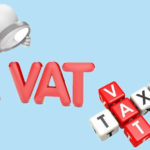Service Tax Department is nowadays conducting Audit on a regular basis based on certain criteria/ features etc. as applicable to assessee. More or less each and every assessee falls under audit net within a time period of two to five years. There are examples where audit notices are even issued in the very first year too. There are separate groups/audit teams formed within the Service tax division/Commissionerate comprising of officers of the rank of Superintendent and Inspector. The cases under audit are selected either manually or by the assistance of computer. The Deputy Commissioner generally earmarks audit cases to be taken up by the respective audit group/team. In this process a notice is first issued to the assessee calling for certain details/ documents etc. and based on the same an audit program is chalked out. Thereafter a formal visit is paid by the service tax officers to the assessee’s premises for detailed examination & verification of records etc. to conduct the service tax audit in the interest of revenue. If there is any discrepancy noticed then steps are taken for recovery of short paid/not paid service tax. This is the starting point of litigation where tax dept. always tends to bring maximum revenue whereas assessee tries to defend the same. Recently, the powers of service tax dept. officers to conduct such audit were challenged in the Allahabad High Court.
Summary of the Judgment:
The Honorable Allahabad High Court in case of M/S A.C.L. Education Centre (P) Ltd. & Others V/s. Union Of India Thr. Secy. Deptt. of Revenue, New Delhi & Others [WP No. 11954/MB/2013] held that as per Section 72A of the Finance Act, 1994 only a Chartered Accountant/ Cost Accountant appointed by Commissioner can conduct audit under Service Tax. Rule 5A of Service Tax Rules, 1994 authorize Departmental Personnel’s to demand the documents just to facilitate the correctness of books of accounts and ultimately, the audit will be conducted by the Audit Party headed by the CA/CMA deputed by the Commissioner.
Position of Law:
Under Service tax law there is a concept of self-assessment and self-adjustment of Cenvat credit. It means the assessee can make tax payments & file ST-3 return during the half year period based on its own calculations and the same is also accepted by the tax dept.
The powers of dept. to call for further documents etc. are conferred under rule 5A. So let us first understand Rule 5A of the Service Tax Rules which read as:
Rule 5A: Access to a registered premises.
(1) An officer authorized by the Commissioner in this behalf shall have access to any premises registered under these rules for the purpose of carrying out any scrutiny, verification and checks as may be necessary to safeguard the interest of revenue.
(2) Every assessee shall, on demand, make available to the officer authorized under sub-rule (1) or the audit party deputed by the Commissioner or the Comptroller and Auditor General of India, within a reasonable time not exceeding fifteen working days from the day when such demand is made, or such further period as may be allowed by such officer or the audit party, as the case may be,-
(i) the records as mentioned in sub-rule (2) of rule 5;
(ii) trial balance or its equivalent; and
(iii) the income-tax audit report, if any, under section 44AB of the Income-tax Act, 1961 (43 of 1961), for the scrutiny of the officer or audit party, as the case may be.
Application of section 14AA to Service Tax:
On 01.01.2008, the Government of India through its Board issued instructions F.No.137/26/2007-CX4 in respect of amendment made by Notification dated 28.12.2007, by inserting Rule 5A(2) of the Service Tax Rules and clarified that with effect from 12.05.2007 vide Section 83 of the Finance Act, 2007, that Section 14-AA of the Central Excise Act is applicable to the Service Tax, to empower the Commissioner of Central Excise, to order for cost audit by a Cost Accountant to study the abnormal legislation of CENVAT Credit under Section 14-AA.
Insertion of provision of Special Audit:
With effect from 28.05.2012, Section 72-A has been inserted in the Finance Act, 1994, for the purpose of Special Audit under Service Tax in certain cases which provides for getting the accounts of a service tax assessee audited by a chartered accountant or cost accountant nominated by the Commissioner.
Power of Govt. to make rules:
On perusal of the provisions of Section 94 of the Service Tax Act, it is evident that the Central Government has power to make Rules for carrying out provisions of Chapter V.
Brief facts of the case & Judgment thereon:
The Factual matrix of the cases are that the Central Excise Department on various dates has issued intimation under Rule 5A(2), to assessee for making a reference to conduct an
Audit under EA-2000. For the said purpose, the necessary documents were demanded from the assessee. The assessee objected and also challenged the vires of Rule 5A(2) of the Service Tax Rules, 1994 interalia, on the ground that the provision of Rule 5(A)(2) are contrary to the provision of Section 72 of the Service Tax Act. Thus, the petitioners-assessee prayed for declaring the Sub Rule (2) of Rule 5-A of the Service Tax Rules, 1994, as inserted by Notification No.45/2007-ST to be ultra vires.
Second prayer is regarding quashing of the impugned intimation, whereby certain documents were required for conducting Central Excise Service Tax Audit under EA-2000.
Contention of the assessee:
It was contended that on perusal of the provisions of Section 94 of the Service Tax Act, it is evident that the Central Government has power to make Rules for carrying out provisions of Chapter V i.e. Rules can only be framed for the provisions which are noted in Chapter V of the Finance Act, therefore, no rule can be framed by the Central Government in respect of any provision of the Act which is not specified in the Chapter V of the Finance Act, 1994. There is no provision in the Finance Act, 1994 for framing of Rules in respect of the audit of the accounts of private person or Companies or Firms who are paying service tax by self assessment, therefore, Rule which empowers service tax officials to carryout scrutiny, verification, checks and for making available information as mentioned in Sub Rule (2) of Rule 5-A by audit party and as such the said Rule so framed is without any authority. Thus, it is ultra vires.
Further it was also stated that the impugned Rule is totally arbitrary and without specifying the period for conducting the special audit. Qualification and manners in which audit will be conducted has not been defined anywhere. There is no provision to provide the audit report to the petitioner-assessee. Audit Manual, 2011 is exclusively meant for the departmental use. But, petitioners-assessee was asked to fill up certain forms.
In order to buttress the argument several case laws were cited wherein it was decided that that statutory rules must be construed in harmony with the rule making power, in exercise of which, the statutory rule has been made. Further a judgment dated 26.09.2012 of the Calcutta High Court in Writ Petition No. 21053 (W) of 2011 in case of SKP Securities Ltd. Infinity Infotech Parks Ltd. Versus Deputy Director (RA-IDT) on the similar issue cited, wherein it was held that CAG has no power to conduct service tax audit of private enterprises, which is not funded by Government.
Contention of the revenue:
It was submitted that the Rule is not inconsonance to Section 72-A of the Finance Act, 1994. The purpose of Sub-Rule (2) of Rule 5A is to get the account audited by an Auditor deputed by the Commissioner. In case, it is undertaking of Government of India, then Controller Auditor General of India was authorized to conduct the audit. The purpose of impugned notice is to collect the information from the assessee to assess the correct tax and if the Commissioner is satisfied, then he may appoint a Chartered Accountant for the purpose of audit. The audit will not be done by any officer or on his behalf. The audit will be performed by a qualified Chartered Accountant. So, the reference to the Audit Manual, 2011 for the Department is valid. Asking the petitioners-assessee for filling up certain forms, is just to facilitate the audit, which is to be carried out, as per law. It is also a submission of the learned Additional Solicitor General of India that after completing the audit, a copy of the report is always available to the petitioner-assessee.
Findings & Judgment:
It is clear that section 72A is applicable where the assessee is not maintaining the books of account properly to ascertain the liability of the service tax. To determine the correct tax, books will have to be examined and if need be, audited by a qualified Chartered Accountant.
Rule 5-A of the Service Tax Rules, 1994 is just to facilitate the above-mentioned provisions. Rule 5-A, sub-rule (2) states that every assessee shall, on demand, make available to the officer authorized or the audit party, records, trial balance and income-tax audit report, if any. So here, the officer will demand the documents just to facilitate the correctness of books of accounts and ultimately, the audit will be conducted by the Audit Party headed by the Chartered Accountant/Cost Accountant, as the case may be, deputed by the Commissioner.
It is Commissioner on whose behalf, the officer will collect the material and the Auditor will perform the audit. In any case, the final report duly signed by the Chartered Accountant will be submitted to the Commissioner. In case of Government Autonomous Body, the function of the audit has been assigned to the Comptroller of Auditor General of India. Thus, there is no inconsistency in Rule 5A and Section 72-A of the Finance Act, 1994. The said provision is not arbitrary. The manner for conducting the audit is as per the accounting standard provided by the Institute of Chartered Accountant of India. The audit report will be made available to the assessee, as per law.
Author’s Comments:
As per the above ruling, audit under Service Tax can be conducted only by the Audit Party through authorized person under Section 72A i.e. CA/CMA. In other words, department solely is not authorized to conduct the audit. This will certainly give a big relief to the assessee. On the other hand professional opportunities for Chartered/Cost Accountants are also likely to be increased because instead of departmental officers now we will conduct the audit. But at the same time it must be kept in mind that under rule 5A(1) the officers still has got powers to access to any premises registered under these rules for the purpose of carrying out any scrutiny, verification and checks as may be necessary to safeguard the interest of revenue. Thus the author apprehends that now the departmental officials instead of conducting audit will start doing scrutiny /verification/checks etc. resulting in more or less the earlier audit process only. So it will be really interesting to see the impact of the above judgment on the approach of service tax department. Further the powers of CAG to audit records of private entities have always been a disputed matter. Recently, this matter was again raised when Delhi Govt. ordered CAG audit of Electric Generation/Supply companies in Delhi. The matter reached to Delhi High Court also but Division Bench of Hon’ble Court allowed conducting the audit of receipts (revenue) part only by the CAG. More recently, the Andhra Pradesh High Court also granted stay on Audit by CAG of Private Company in case of M/s Aditya Housing & Infrastructure Development Company Pvt Ltd [WP No.26799/21872 of 2013]. *The author is a practicing chartered accountant at Guwahati and can be reached at: manoj_nahata2003@yahoo.co.in



